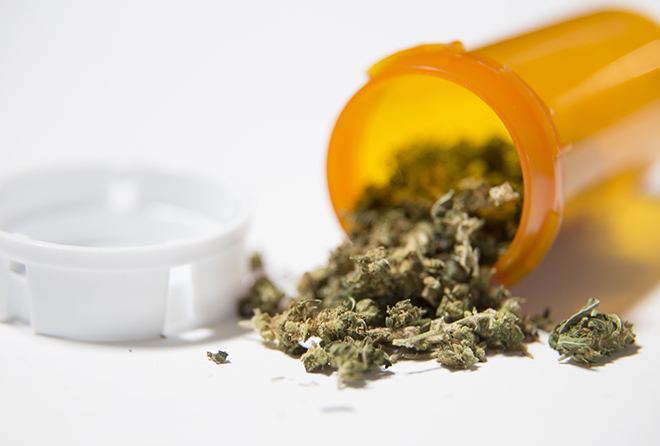
It may be a "brain killer." It may be a "miracle cure." And it may be coming to Evanston.
Earlier this summer, Evanston City Council approved a location on 1800 Maple Ave. for the potential placement of a medical marijuana dispensary. The consent was a leap forward in the state-controlled process as Illinois law requires the determination of a specific site as well as a licensed supplier.
"I think it's a progressive movement. The western states have already done it," said Adam Rehage, a 20-year-old Evanston resident. "It's a step in the right direction."
With legalization in 23 other states, Illinois issued the "Compassionate Use of Medical Cannabis Pilot Program Act" in 2013 as a four-year trial. Areas including Evanston and Niles Township received the second highest number of applications for dispensary ownership in the entire state. However, only 60 dispensaries are allowed under the act.
Some see legalization as good for business. Previously this year, Colorado's Department of Revenue revealed that in January alone, medical marijuana had generated $900,000 in sales tax.
Nonetheless, Sean Hopson, a Northwestern University Police Officer, doubts it will provide a revenue jump for Evanston.
"I don't think it's going to raise Evanston's community awareness as far as marijuana or a higher tax base," Hopson said. "I don't think it will affect the black market, unless people using it 'medicinally' go into business for themselves."
Hopson nailed the question dwelling on many residents' minds: Will people use medical marijuana appropriately?
Delores A. Holmes, 5th Ward Alderman for the City of Evanston, explains how "the responsibility lies with the doctors."
"We just have to trust that they will do the right thing," Holmes said. But trust is not a strong enough answer for Robert Crabbe. Father of two college-aged sons, he believes the location only a few blocks from a major university is dangerous.
"My main concern is the freshmen coming in. You've got young people who are away from home for the very first time. All of a sudden, you're giving them an opportunity [to get marijuana] through a doctor or whatever means they can find. You could get basically a good kid, and he falls prey to this because it's so convenient."
Though Illinois law does not allow dispensaries within 1,000 feet of a school or child-care facility, many college students are stunned by the proximity to the Northwestern University campus.
Ian McCaferty, a Medill freshman, says that although the medication is for medicinal use, he is "sure someone will figure out how to obtain the marijuana without a real prescription and attempt to sell to people, possibly students."
Currently there are no medical marijuana dispensaries in Illinois, and the application period has closed. The process is thorough and expensive with application fees exceeding $60,000, a demand requirement for at least $400,000 in liquid assets, background checks, disclosure of tax returns and a detailed plan.
However, Chicago has already experienced a piece of the process. Good Intentions Medical Marijuana Services, located in Wicker Park opened August 2013 with the goal of educating customers on the pilot program and establishing a relationship between potential patients and physicians. In the years to come, clinics like this one are expected to emerge all around the state.
As for Evanston, the reaction to a dispensary appears divided. Some champion it as a progressive movement, but downplay it as mostly benign in reality. Others define it as an imminent threat to naive and impressionable college students.
Still, others remain ecstatic. "Fabulous," said Galen Burghardt, an Evanston resident in a business suit. "Think of it this way. Evanston – it use to be the home of the Methodists, the dry town on the North Shore, and now it's developed into the home of some breweries and distilleries. I say, 'Bring it on.'"
Marlene Lenthang contributed to reporting the article.